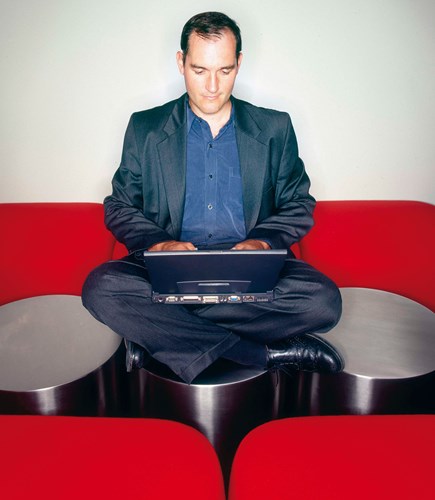Knowledge and relationships – not predictions – are the windows to the future says author and entrepreneur Ross Dawson
A futurist is not a fortune teller. Ross Dawson, a futurist, helps businesses face the demands that an endless chain of tomorrows always brings. His job, he says, is not soothsayer, but trusted adviser. “People ask me, ‘how do you become a futurist?’” Mr. Dawson says. “My usual response is, ‘You claim you are, and people either believe you or they don’t.’”

The trick behind that, he adds, is that you have to have already established credibility. The second of his four books, Living Networks, anticipated Facebook and the rise of social media. “That helped,” he says.
Based in his native Australia, he earned his university degree in physics and went to work first in computer sales and later in equity and capital markets with Merrill Lynch and Thomson Financial. Even as a student, he was interested in what was then termed “futurology.” At those jobs, he learned how society works in technology, business and finance. To that, he added important training in scenario planning.
Mr. Dawson is the founder of professional services and publishing firm Advanced Human Technologies, and two professional platforms, the Future Exploration Network and the Future of Media Summit. He is in demand as a media commentator, guest speaker and corporate adviser.
The future, he says, is being written today in the relationships businesses are building. He talks to us about his profession, the challenges of rapid social and technological change, and the lessons learned from his own worst prediction.
How do you define the role of futurist?
Someone who helps people and organizations think about the future, so they can act better today. One project I’m working on is a taxonomy of futures studies and how futurists think, to explain the many different approaches. But that’s how I define it.
I don’t believe that predictions are useful. In fact, they can sometimes have negative value. If you hang your hat on a prediction, you’re likely not looking out for changes that are coming that will prove it wrong. So all the thinking that goes behind that prediction is lost. The reason to think about the future is to work out how we can shape it to create the world we want. The future is made by people.
What’s the purpose of your published list of the world’s top female futurists – 167 so far, from all over the world?
We need diverse perspectives. If all the perspectives on the future happen to be white, male and not so young, that’s a problem. If you are in Bangladesh, you’re going to have a different perspective on the world than if you’re from New York. And there are extraordinary people out there.
The emerging economies are interesting here, in that they’re not participating in the world of the past, but in the world that’s coming.
Absolutely. There’s a lot of discussion in Africa about leapfrogging. You’re not tied to the old technology, the way to do things. You can leap ahead because you don’t have anything to hold you back. Some places are going straight to mobile without having fixed lines. Kenya and other countries are arriving at more advanced payment structures than Australia, with the US being way, way behind in terms of payments. They are creating the future.
